
LITHUANIAN HOMESICK BLUES
by
Neil Cocker
It was getting dark.
Cammy Shanks sat in the armchair, wriggling his fingers into a hole in the corduroy upholstery. The material strained against his knuckles as he slid his hand in, up to the wrist, and for a moment he imagined he was a vet and the armchair was a pregnant cow. The image unsettled him, and he forced it away, before proceeding to slip his arm elbow-deep into the guts of the chair. With his ragged fingernails he found what he was looking for, and gouged at the foam stuffing. Pick, pick, pick. Then, when he had quarried a satisfying handful, he slowly extracted his bunched fingers from the armchair, released the crumbs of orange fluff, and watched as they drifted snow-like to the floor.
This is no way to spend a Saturday night, he thought.
Sleet hammered the window and he glanced up, momentarily startled. In the black glass his reflection stared back at him, and through his image, the lights of the tower blocks glimmered in the distance. He wondered if now was a good time to kill himself; but then he remembered he hadn�t completed the necessary administration: the destruction of incriminating love letters, tidying the house up a bit to prevent extra shame for his mother, composing and writing a suicide note. There was so much to do.
Images of his possible suicide flitted through his mind: a clumsy swan-dive off the balcony, freefalling to the ground, the concrete punching his skull to pulp with one well-placed blow. Chewing pills, and washing the powdery mush down with mouthfuls of vodka. His cold body slumped in the blood-slippery bath.
Stop, he told himself. Stop stop stop stop.
He forced himself up from the sagging chair and stood in the middle of the room, peering down at his floppy, slack-toed socks. His breathing quickened, and his heartbeat joined in the rhythm, drumming in his chest, banging on his ribcage. He rushed through to the kitchen.
He opened the fridge door and cold air leaked out to meet him. The harsh light revealed the fridge�s contents: one shelf stacked with dark green bottles of Lithuanian beer, a mutilated stick of salami, a wedge of yellowing butter, a bottle of suspiciously luminous orange juice, and in the back corner, a half-bald tennis ball. He reached in for a beer, changed his mind, and plucked the ball off the shelf, its rough surface cold to the touch.
Why was the tennis ball in the fridge? He frowned, panic attack forgotten, the open fridge spilling its light into the kitchen.
He loved this tennis ball. In the absence of a spouse, partner, flatmate or pet, it was the closest he had to a companion in the flat. He�d found the ball on one of his aimless walks around town back in the autumn, wandering across the wastelands near what was once the Soviet tank school. It was a strange part of town: the tank school had been bulldozed a few years ago, leaving faint concrete outlines in the ground that sketched out the shape of the vanished buildings. Rumour had it that deep in the forest behind the school there had been a nuclear missile launchpad, which, claimed one of Cammy�s students, explained why the �cabbages always grow small� in that part of the town.
So he had been walking around the wasteland and in a clump of grass he�d found the tennis ball. Its yellow fur had mostly fallen out (from radiation sickness, he liked to think) leaving it hairless except for a few tufts of resilient, stubbly whiskers. Bizarrely, the ball had his initials, CS, stencilled on the side in black marker pen. Puzzled by this act of fate, he had pocketed the ball.
He closed the fridge, squeezing the ball tightly between finger and thumb. The ball had probably found its way into the fridge late last night; maybe he�d been carrying it when he�d come to get a beer, and in his befuddled state had placed the ball in the fridge before taking a bottle. That was the likely explanation. As he walked out into the hall, he threw the ball into the air and caught it; and again, threw it into the air and caught it.
The hallway was deathly still. Someone coughed in the flat above. He carefully placed the chilled tennis ball down on an ancient cigarette burn on the linoleum, then took three steps back and examined the target: the toilet door, slightly ajar. Was he good enough to kick the ball through the gap?
If he got the ball through the gap, he decided, then he would give things another chance. If he missed the gap in the door, then he would kill himself.
A penalty kick.
He took two steps back and one to the left, then launched himself forward and kicked the ball low and hard.
The ball sped along the dusty floor, heading wide of the target, then struck a bump in the linoleum and skipped up through the gap in the door.
He stood in the hallway, motionless.
So.
Another chance.
He went to retrieve the ball. It had ricocheted into the toilet bowl, and bobbed in the murky water like an impressively unflushable turd. He removed the tennis ball from the pan and took it into the bathroom, where he ran it under the hot tap and shampooed it clean with the Turkish shower gel he had bought at the Saturday market. The shower gel smelled faintly of perfume and petrol. Once he was done he took the ball back through to the hall, and placed it on the radiator to dry: its few matted hairs reminded him of a black and white print of a soaked cat his ex-girlfriend Sushi Coulston had on her bedroom wall, and this in turn reminded him of crumpled sheets and the smell of condom rubber and her throaty laugh splitting the midnight silence. He noticed that his initials were fading on the ball; soon they would be gone altogether, disappearing away into nothing. Just like me, he thought. Just like me.
What now?
He went back through to the living room and tugged open the balcony door. The freezing air was shocking, every breath chilling the lungs. As he stepped over the rows of empty bottles, a few snowflakes landed on his trousers.
The falling snow was erasing the world again: the wheel-tracks and footprints on the road were almost filled in, and the wet black limbs of the trees were fading in the haze. He tilted his head back and stared up into the sky until he was dizzy with the spinning snow. Like travelling through hyperspace, he thought to himself, like whooshing through a million falling stars.
The thermometer on the wall read -13C. Sometimes he liked the cold. It was a challenge; he liked testing himself, seeing how long he could endure the ice. He gripped the railings, and the freezing steel stuck to his skin, heavy snowflakes patting against his eyelashes. He counted his heartbeat: if he reached twenty, he decided, then he'd won.
Eighteen, nineteen, twenty...
Victory. Time for a drink.
As he zipped up his fleece and puffa jacket, his face began to itch. He leaned over and looked in the hall mirror. His stubble was heavy now, almost a beard, ginger bristles glinting in the light. On account of his red hair - and maybe his drinking - some of his students at the school called him Viking, but his dark eyes confused the issue. The Lithuanians liked things to be clear-cut. Their three years of uncensored Western television had taught them that the world was full of stereotypes, and they were not going to be persuaded otherwise.
He laced up his paratrooper boots, wedged on his tea-cosy hat and headed down the stairwell, scratching his stubble as he went. A ginger beard? Fuck�s sake. The ginger hair on his head was embarrassing enough; now he was covering his face with the bloody stuff as well.
He opened the front door and stepped out into a wall of darkness and cold. It was like leaving the airlock on a spaceship, stepping out into this black void. His lungs contracted in shock with his first icy breath. As he waited for his eyes to adjust to the darkness, he stood on the gritted pavement, flinching every time a snowflake brushed against his face, reminding himself it was just falling snow and not a swarm of falling insects (a recurring dream lately). He turned and looked up at the rows of windows in his block, eyes tracing their symmetry; at one window a face peered down at him, then quickly disappeared behind the curtains. His neighbours still found him a source of fascination, and couldn�t stop staring at him if he met them on the stairs. It was understandable, he supposed; he was the first Westerner to arrive here since the collapse of the Soviet Union. Somebody from the weird worlds they saw on their TV sets; somebody from outer space.
He turned left in the direction of the town centre and walked along an avenue lined with silver birches, their boughs frozen stiff and slimed with frost. The night was silent save for the noise of his feet kicking up puffs of snow. He marched on through the unlit streets, chin tucked under his collar, teeth chattering like a military drum. Ahead, the high school appeared through the darkness, the sight of its brown bulk causing his stomach to flutter. He was due back on Monday, and the thought of teaching again after a two week break was terrifying. He imagined the screaming kids, the disapproving glances from the other teachers, the textbooks falling apart at the spines, the chalkdust handprints on his black jeans. The bell drilling every forty five minutes to herald the impending calamity of his next lesson. His guts clenched. Head down, eyes fixed on the crystalline snow, he walked past the school as if he was Perseus avoiding Medusa�s glare.
With the school safely behind him, he looked up again to see rows of tower blocks in the distance, and his eyes settled on the black space between the buildings. Somewhere in that direction, give or take fifteen hundred miles, was Scotland. He imagined his parents sitting down to their evening meal, the coals stacked high in the grate, the buzz of the radio in the background, his mother stirring the gravy. Then this image faded and another one formed: walking along a darkened road to where a kirk spire jutted up against the night sky. Opening the gate into the kirkyard and crossing the rain-soaked grass, beads of dew collecting on the hems of his jeans, each step taking him closer to the new graves, and finally reaching a glossy black headstone with a Celtic engraving.
He stopped walking and closed his eyes, knowing what was coming next.
Down through the grass, through mud and worms and roots, until he reached the damp wood of the coffin. And then through the wood into the tight airless space of decay, the corpse wrinkled, face stretched in a grimace, the eye sockets empty but the hair and nails still growing.
He clenched his fists and forced the thoughts away. You�re in Lithuania, he told himself. Remember, everything that happened is in the past and you can never rewind, you can never pause, you can only ever press play on the great video recorder of life.
He smiled. The analogy belonged to his ex-girlfriend Sushi, the one under the turf in the kirkyard. This was the only way to bring her back to life: repeat her sayings word for word like a spell, until something of her essence seemed to hang in the air, something more tangible than memory.
But then the feeling of relief dissipated, and he returned to the inescapable fact that, in a round about way, he had killed Sushi.
He stood motionless for perhaps two minutes, until his body was shaking so violently from the cold that his legs jerked into emergency action, and he started walking again.
Up ahead, Bar Lolita appeared through the blur of the blizzard: bright yellow lights and belting music. He looked down at his snow-capped boots ploughing through the ice-fluff. Why was he here? Why had he left the safety and warmth of his flat to come to Bar Lolita? What was that painter called again? Gauguin. Christ, he was having a Gauguin moment: why am I here? Where did I come from? Where am I going? Good questions, all of them. Well, he knew where he was going, that was for sure. For a fucking drink.
He pushed open the door to Bar Lolita and descended stairs slippery with melting ice. Halfway down, the sound of shattering glass smashed into the hubbub, and he paused, hand on the railing. Through the music he heard a half-hearted echo, a tinkling as the shards were swept up. His foot hovered above the next step for a moment, then gravity brought it down.
The bar resembled a crypt, dimly lit with shadowy corners. On one side, a row of plastic tables huddled close to the wall, and a few heavily lipsticked girls sat nursing glasses of wine, looking bored. On the other side, next to an alcove with a pool table, a crowd of mafia zombies stood smoking, cans of Dutch lager in their hands. The hierarchy was clear to see: the top boys wore full-length leather jackets and looked like extras in a gangster movie; the minions wore imitation leather jackets and shell-suit trousers.
They were all looking at him.
He crossed the stone floor to one end of the bar and perched himself on a stool. The barman stared at him.
Nothing to worry about, he thought to himself, shuffling on the plastic seat to get comfortable. They can see me but they can't touch me; it is an unwritten rule in this town. I am a ghost.
He nodded to the barman. �Degtine. Alaus.�
Vodka. Beer. Two of the few Lithuanian words he knew.
The barman poured his beer into a tumbler and clicked down a thimble glass of vodka. Cammy took a five litas note from his wallet and reached over to pass it to the barman, but stopped when he saw the plate of kepta duona: fried black bread rubbed with raw garlic and salt. He nodded to the plate and asked for three pieces.
The music got louder, drowning out everything except for an undercurrent of shouting voices and the angry clack of pool balls. After two or three mouthfuls of beer he knocked back the vodka. Saliva rushed into the back of his throat, and he snatched at a piece of kepta duona and bit into its garlicky crispness. He chewed it into a soft pulp, moving it around his mouth, crunching into grains of coarse salt, the vodka rush tingling in his blood.
He realised he'd forgotten to eat today; in his head he saw the pot of curry soup sitting on the stove, three days old now, the surface slicked with grease bubbles. It would do for later on, ballast to prevent him capsizing.
The wooden bar in front of him was ringed with wet circles from his glass. With his finger he broke the rings, drawing beer-lines on the veneered surface. It could be worse, he thought. I could be back in Edinburgh.
He put another five litas note on the bar; the barman snatched it up, and another beer and vodka banged down in front of him. At the same moment the song finished. There was a silence, a sudden gap in time and space.
He stared into the tiny puddle of vodka in the thimble glass. The music kicked in again, German techno this time. EIN ZWEI POLIZEI... the song distorted through the speakers, bass trembling, shuddering in his bones. In one quick slam he downed the shot, and screwed his knuckles into his eyes until sparks danced in the red darkness.
A sudden shout came from the direction of the pool table. Then another yell and the noise of breaking wood. He looked over his shoulder to see a pool cue spin across the room and splinter against the wall. The girls at the tables got up and walked to the other end of the bar, still holding their cigarettes and glasses of wine.
He turned back to his beer. The fight would blow over. He knew from experience that the punches and yells always rained themselves out. The barman was polishing glasses and stacking them behind the bar.
At least, Cammy thought, I feel things over here, sadness and sometimes happiness. At least here everything is sandpaper-raw.
From behind he heard scuffling, shouts, the glassy warble of an ashtray spinning on the stone floor.
I am seven days into a new year. This year will be different. Another chance. No more counting wallpaper patterns. No more tennis ball penalties.
A hand closed on his arm and somebody spoke close to his ear.
�Scottish man,� the voice said.
�Ultravox, Loch Ness Monster, haggis.�
His heart sank and he peered down into his beer. The voice belonged to Jonas Korsakas, his landlord. His mafia landlord.
Jonas grinned, revealing nicotine-brown teeth, mouth framed by the ragged beginnings of a goatee beard. �Whisky for Scottish man,� he said.
On the bar in front of Jonas sat a bottle of whisky and two glasses. NESSIE MACQUEEN SCOTCH WHISKY, boasted the label, on which a kilted blond man danced a highland fling above two swords. BOTTLED IN DUNDEE. Jonas poured three-fingers worth into a glass and slid it over to Cammy.
�Jeers,� said Jonas, and downed his shot.
Cammy frowned at the whisky in front of him. Say goodbye to your eyesight. He bashed it back in one go: sour, scalding, like cough mixture. He spluttered and bit into a piece of kepta duona. Jonas slapped his back.
Cammy wiped his hand over his lips, smearing away the grease. Jonas took something out of his pocket: a folded piece of paper, torn from a magazine. With calloused fingers he flattened it on the bartop.
�I want you write English letter,� said Jonas.
Cammy picked up the piece of paper. It was the address for the official AC/DC fan club.
Jonas glanced around, then leaned closer to Cammy. �I want photograph. With... autograph.�
Jonas tilted the bottle over Cammy's glass and poured another three fingers. The reflection of the overhead light glinted gold in the whisky, and Cammy gently swirled the liquid round the glass. He tipped back the shot and it burned its way down his throat like battery fluid.
Jonas leaned over the bar, sucking on a Lucky Strike, blowing smoke out the corner of his mouth. Cammy could see a revolver sticking out the inside pocket of his leather jacket. �I always love,� said Jonas. �I always love the heavy metal. It make my heart go like bird.�
He shrugged and raised his palms to the ceiling.
�You cannot understand. I was young boy and this was beautiful noise.�
Cammy looked at his empty glass, the smear of alcohol left in the bottom. I'm hammered. This drunkenness has come from Dundee. Is there no escaping Scotland?
�When I first hear She�s Got Balls,� said Jonas. �I cry for maybe two days.�
The barman wiped the bartop, leaving wet swipes shining on the matt black. Time to go. Cammy raised his hand and asked for a bottle to take away.
�When you write to AC/DC?�
Cammy shrugged. �Tomorrow.�
�Tonight,� said Jonas, grinning. �Or I kick you from apartment.�
The barman nipped off the bottle-cap and put the beer down in front of Cammy. Froth crawled out the neck, creeping foam, and he quickly sooked it off and got to his feet.
Jonas's voice followed him across the floor. �Bring me AC/DC!�
Cammy walked with the cold bottle in his hand, eyes fixed on the stairs. Somebody brushed against him, leather arm scuffing off his shoulder. He kept his eyes on the stairs. The CD had jammed, skipping endlessly: da-nih-nih-nih-nih-nih-nih...
His foot found the first step in the darkness, and with his free hand he groped at the rail. Somebody moved past him quickly and he shrank against the wall, waiting for a fist. But nothing came. I am a ghost, he reminded himself, and stumbled up the stairs towards the square of light.
� Neil Cocker
Reproduced with permission
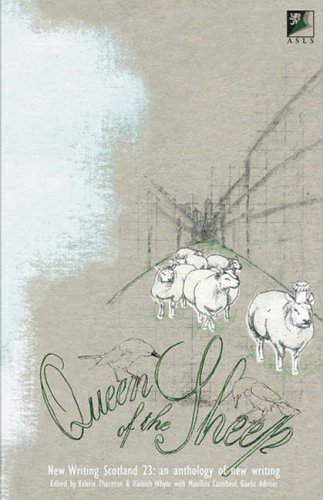
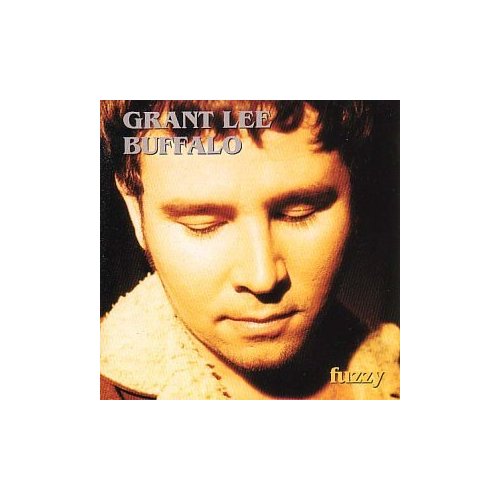

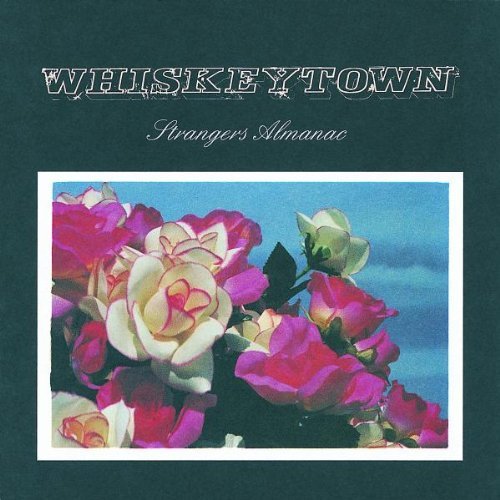 STRANGERS ALMANAC by Whiskeytown
STRANGERS ALMANAC by Whiskeytown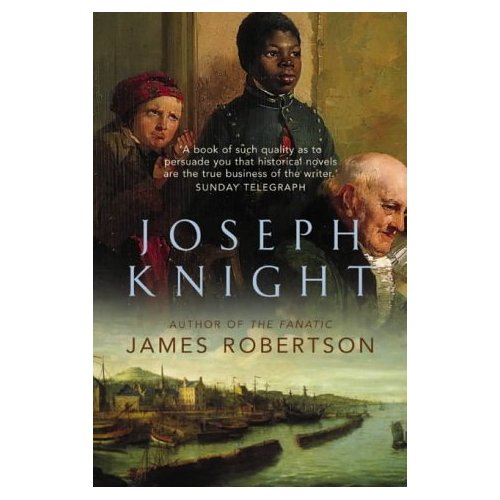
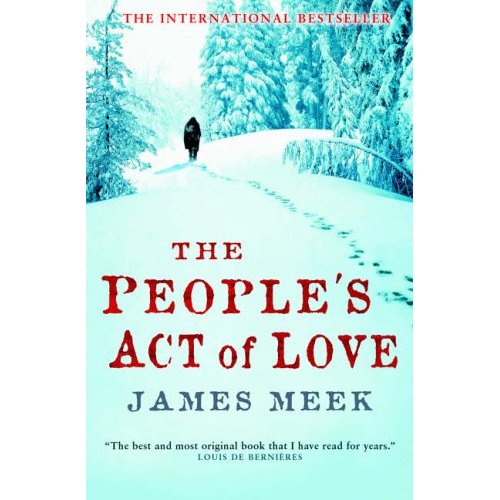
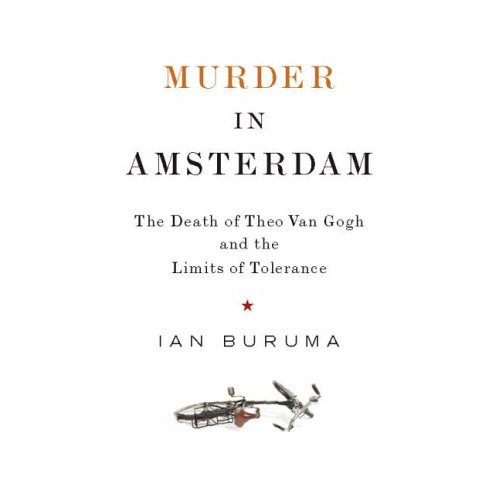 MURDER IN AMSTERDAM by Ian Buruma
MURDER IN AMSTERDAM by Ian Buruma
